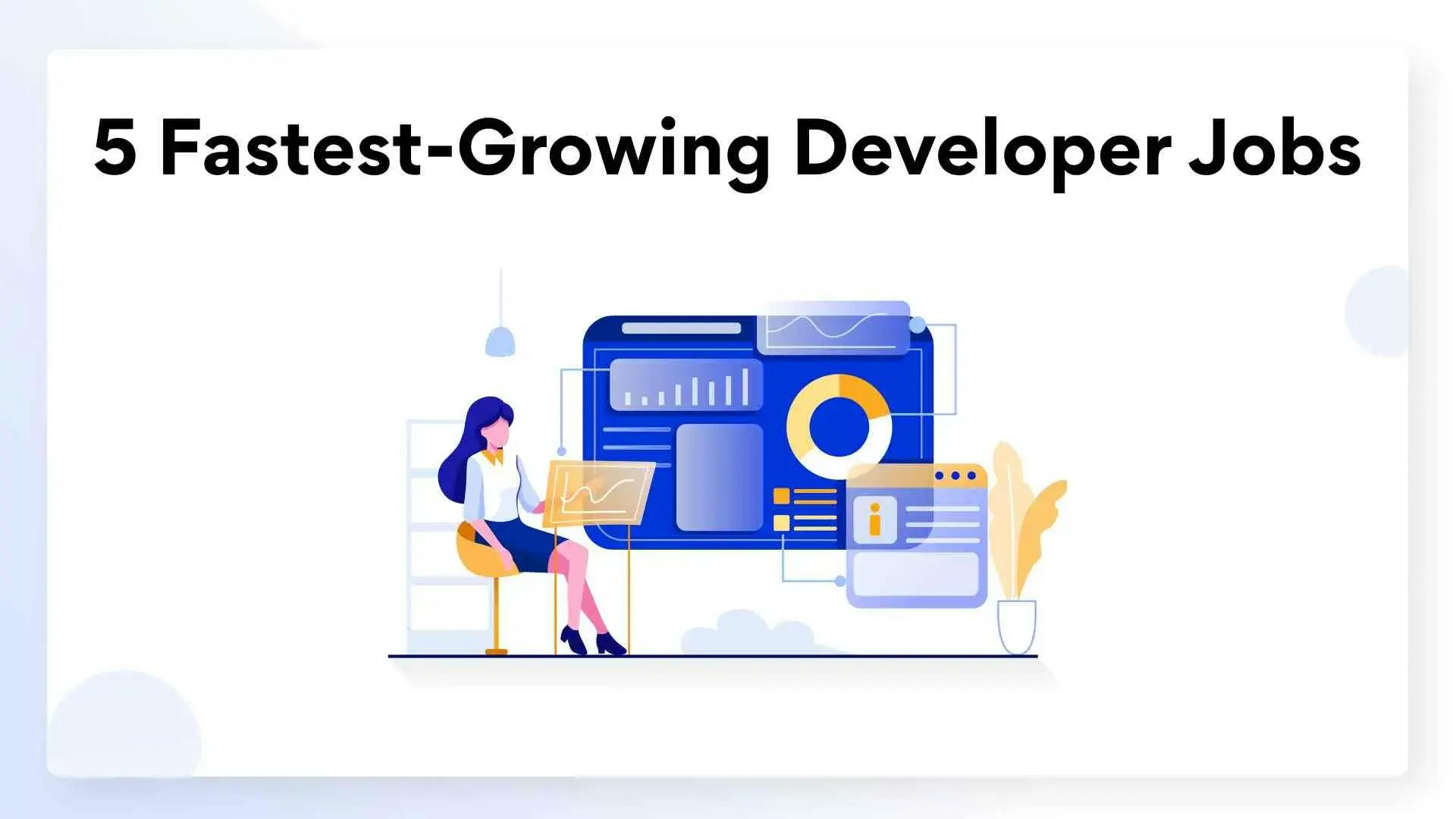Remote Linux developer jobs with top U.S. companies
At Turing, we are looking for talented remote Linux developers who can design, implement and monitor the applications’ infrastructure. If you are passionate about building and developing solutions in Linux, here’s your chance to accelerate your career by working with top U.S companies.
Find remote software jobs with hundreds of Turing clients
Job description
Job responsibilities
- Work across multiple Linux kernel versions
- Design and develop reporting and infrastructure monitoring tools
- Develop test automation frameworks
- Define software requirements and functional specifications
- Build and maintain configuration management solutions
- Develop support for new interfaces
- Perform regular technical coordination
Minimum requirements
- Bachelor’s/Master’s degree in computer science (or equivalent experience)
- 3+ years experience in developing and maintaining Linux file system (rare exceptions for super talented devs)
- Working knowledge of basic Linux tools, such as bash scripts, make/cmake, etc.
- Familiarity with Linux scripting languages such as Shell scripts, Perl, TCL, etc.
- Capability to work full-time (40 hours/week) and overlap 4+hours with U.S. time zones
- Ability to collaborate with internal and external stakeholders
Preferred skills
- Proficient in C programming and versioning tools like Git
- Excellent problem-solving skills and attention to detail
- In-depth knowledge of system administration and Red Hat Linux
- Knowledge of Linux security patching, SAN, NAS, and networking
- Fluency in English and effective collaboration skills
Interested in this job?
Apply to Turing today.
Why join Turing?
1Elite US Jobs
2Career Growth
3Developer success support
How to become a Turing developer?
Create your profile
Fill in your basic details - Name, location, skills, salary, & experience.
Take our tests and interviews
Solve questions and appear for technical interview.
Receive job offers
Get matched with the best US and Silicon Valley companies.
Start working on your dream job
Once you join Turing, you’ll never have to apply for another job.

How to become a Linux developer ?
Linux developers are among the most in-demand professionals in the tech market today, and that’s why the competition for top jobs remains fierce. Linux is one of the most widely used operating systems and it is constantly growing, especially in the business environment as it has a large community to back it up in case of errors. As an OS, it is open-source and primarily developed for computers, servers, mainframes, mobile devices, and embedded devices.
Linux developers are responsible for developing, documenting, and debugging computer programs for the Linux OS and related software applications. Their responsibilities are generally similar to those of software developers and may include using C ++, Python, or any other programming language to write code or instructions that the device can understand.
Given the increasing popularity of the Linux OS and the increasing market demand for Linux developers, one might wonder how to become a Linux developer. In this section, we will guide you through the structured approach, professional knowledge, and skills required to become a Linux developer.
What is the scope of Linux development?
Digital devices determine our daily life. Be it a laptop, a smartphone, or a PC, our daily life can no longer be imagined without them. The operating system manages these devices. There are different types of operating systems and Linux is most renowned among them.
Operating systems like Android are based on Linux as it is an open-source operating system and is used by almost every big company around the world. This includes industry giants like Twitter, Google, Facebook, IBM, Amazon, McDonald's, and many more.
What are the roles and responsibilities of a Linux developer?
Linux developers are technical professionals who specialize in maintaining and developing Linux infrastructure technology using Linux kernel. They maintain best practices on managing systems and services across multiple roles, including:
- Troubleshoot, analyze, and log information about performance exceptions
- Proactively monitor system performance and plan capacity
- Manage, coordinate, and deploy software updates, patches, hotfixes to servers, workstations, and network hardware
- Create and modify scripts or applications to perform tasks
- Input to provide ways to improve the stability, security, efficiency, and scalability of the environment
- Collaborate with other teams and team members to develop automation strategies and deployment processes
How to become a Linux developer?
The following are some pointers you need to follow to land remote Linux developer jobs.
- If you are an average learner, you can use YouTube to learn the concepts. It offers free access to all web development courses, although they are not in-depth.
- If you're a slow learner, you can go to Udemy and can go through all of the free web development courses available.
- You can go to the website of the particular tech stack you wish to study and read through the entire documentation available. There are other institutions, both online and offline, that have sprung up to meet this widespread need for courses. Be proactive to leverage them as well.
- Drafting an insightful remote Linux developer resume can also help to be considered for top opportunities.
Now, let's look at the skills and methods you'll need to master to become a successful Linux developer.
Interested in remote Linux developer jobs?
Become a Turing developer!
Skills required to become a Linux developer
Linux development is not at all easy as it requires a lot of patience and hard work. You’re required to have deep knowledge of domains and OS to get a high-paying Linux developer job. Some of the skills required to become a Linux Developer include:
1. C programming
You must first learn C programming as most parts of the Linux kernel are written in C and some parts are written in assembly language. If you want to contribute to very low parts of the kernel, you can also learn assembly language. But in the early stages, learning the C language is a must. Also note that the Linux kernel does not depend on the standard C library, so some parts of the C library are not supported.
2. Data structure and algorithm
To become a Linux kernel developer, you must have a basic understanding of data structures and algorithms. An algorithm is usually a step-by-step approach to solving a specific problem, while data structures are concerned with how the data is organized. These two concepts help developers to solve the problem utilizing less memory and time. Understanding data structures and algorithm concepts will help you find the optimal solution for a specific problem. Meanwhile, you can search for various online and offline resources to master data structures and algorithm concepts.
3. Operating system
After learning how to program, you must become familiar with the operating system and its core concept. You can refer to books to learn more about operating systems, or you can opt for an online course.
4. Linux kernel
Now is the time to get acquainted with the internals of the Linux kernel. To learn more about the Linux kernel, it is recommended that you read Kinuc kernel documentation as learning kernel is very crucial to becoming a Linux developer
5. Competitive programming
To master algorithms and data structures, you can perform competitive programming. Now the question arises, what is competitive programming? Competitive programming is about solving problems in a short time and with limited storage space. It teaches you to think. It also shows you how to solve a problem in a limited period of time. In kernel development, you’ll need to solve the problems every day without affecting memory and the speed of code. That’s why competitive programming is very beneficial for a kernel developer.
6. Version control
Every project, whether in Linux or any other kernel, goes through tons of changes and versions during its operational phase. Version control can help you keep track of even the smallest changes with full traceability. This becomes increasingly important when you collaborate with other developers on a project. There are some of the best version control tools out there like Git, Mercurial, Apache Subversion, and many more, but Git is the most popular of all.
7. Analytical skills
Not just Linux, but any developer working with any kernel must have strong analytical skills with strong experience and a good understanding of the algorithms that drive things. One of the many skills of a good developer is his ability to write clear, non-redundant, and extremely optimized code with the correct logic. Once you get started, you should be able to hone your analytical skills as they become more relevant and important for working on operating systems, where you constantly process, analyze, and visualize the OS.
Interested in remote Linux developer jobs?
Become a Turing developer!
How to get remote Linux developer jobs?
Linux is the core of operating systems. With security and data breach threats increasing day by day, Linux operating systems are given preference over others, hence the demand for Linux developers is drastically increasing. Apart from operating systems, Linux developers can benefit organizations in multiple ways by utilizing a variety of Linux distros for software operations. However, to work on multiple projects they have to reach that proficient level of Linux development. In this regard, there are two primary factors that developers need to focus on to achieve this level of proficiency in the Linux kernel, its distros, and effective implementation of Linux in multiple operating systems. So make sure to get effective Linux development knowledge that can pass you through any development challenge!
Working remote necessitates being skilled and attractive enough for employers to hire you despite the distance or time difference. To land successful remote Linux developer jobs, you need to stay on top of your technical skills and establish a productive work routine.
Turing offers the best remote Linux developer jobs that will suit your career as an engineer. Grow quickly by working on challenging technical and business programs using the latest technology. Join a network of the world's best developers and land long-term full-time jobs for remote developers with better compensation and career development.
Why become a Linux developer at Turing?
Elite US jobs
Long-term opportunities to work for amazing, mission-driven US companies with great compensation.
Career growth
Work on challenging technical and business problems using cutting-edge technology to accelerate your career growth.
Exclusive developer community
Join a worldwide community of elite software developers.
Once you join Turing, you’ll never have to apply for another job.
Turing's commitments are long-term and full-time. As one project draws to a close, our team gets to work identifying the next one for you in a matter of weeks.
Work from the comfort of your home
Turing allows you to work according to your convenience. We have flexible working hours and you can work for top US firms from the comfort of your home.
Great compensation
Working with top US corporations, Turing developers make more than the standard market pay in most nations.
How much does Turing pay their Linux developers?
At Turing, Linux developers can work according to their own decided rate. However, Turing recommends/suggests you a salary where we know we can find you a stable and profitable long-term opportunity. Our recommendations are based on our evaluation of market conditions, individual skills, and the demand we see from our clients.
Frequently Asked Questions
Latest posts from Turing
Leadership
Equal Opportunity Policy
Explore remote developer jobs
Based on your skills
- React/Node
- React.js
- Node.js
- AWS
- JavaScript
- Python
- Python/React
- Typescript
- Java
- PostgreSQL
- React Native
- PHP
- PHP/Laravel
- Golang
- Ruby on Rails
- Angular
- Android
- iOS
- AI/ML
- Angular/Node
- Laravel
- MySQL
- ASP .NET
Based on your role
- Full-stack
- Back-end
- Front-end
- DevOps
- Mobile
- Data Engineer
- Business Analyst
- Data Scientist
- ML Scientist
- ML Engineer
Based on your career trajectory
- Software Engineer
- Software Developer
- Senior Engineer
- Software Architect
- Senior Architect
- Tech Lead Manager
- VP of Software Engineering










